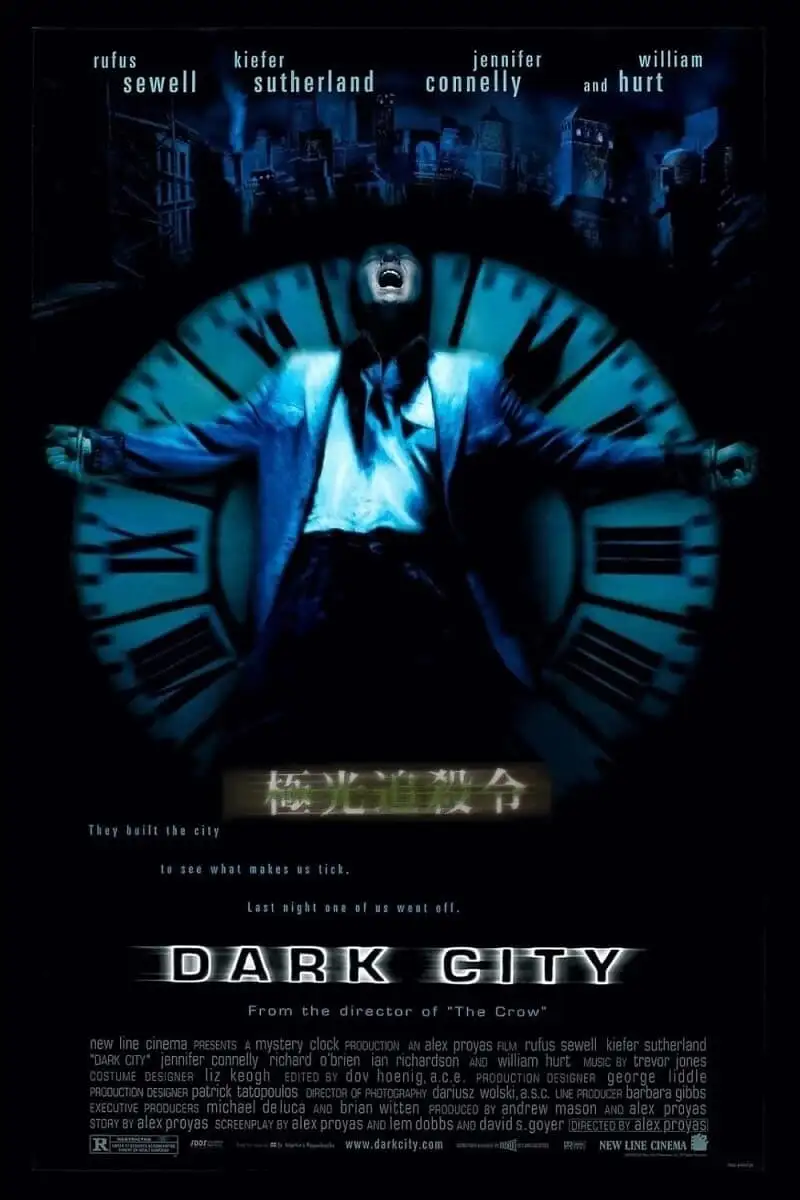Breaking Free from the Prison of Memories: The Path to Rebirth

Translated by AI
Are Memories Reliable?
Have you ever pondered whether your memories are reliable? Are the events you recall concrete and verifiable?
The 1998 film "Dark City" is a noir science fiction story revolving around "memory revision," revealing a profound metaphor: memories are not merely tools under biological control but also symbolize humanity's psychological defense mechanisms.
Set in an imaginary dark city with no daylight, perpetually engulfed in endless night, the residents' seemingly normal lives hide a grand conspiracy. Every resident is manipulated by a mysterious alien race known as the "Strangers". Faced with the extinction of their species, these aliens believe that the emotions and memories of the human soul hold the key to their survival. Thus, they employ their powers to rewrite human memories, observing reactions in new circumstances.
They command the residents' memories, resetting the city's layout under the cover of darkness and implanting new identities and backgrounds. This results in residents living completely different lives each day, unaware of the overwritten or altered past…
Memory: The Mind's Container and Emotion's Filter
I often doubt the reliability of memory because it is highly subjective! Each memory is centered around the "self," embellished with emotions, so the same event, described by different "selves," may appear in entirely distinct forms.
In "Dark City", the process where the "Strangers" alter memories profoundly illustrates memory's subjectivity and its vulnerability to emotional influence. Every memory is a fusion of events and emotions, leading individuals to perceive and interpret similar situations differently. This subjectivity stems from how we feel and interpret experiences, rather than merely stacking facts.
John underwent multiple memory restructurings and replacements, being assigned new identities, backgrounds, and emotions after losing old memories. In each remade memory, he develops varying self-awareness and experiences distinct identities. However, with frequent memory changes, he begins to question the authenticity of these "selves." His struggle reflects the complex relationship between memory and identity: we rely on memories to understand ourselves, considering past experiences as foundational. Yet, this dependence often entangles us in emotions embedded in memories, preventing us from breaking free from established perceptions.
"Emotion" plays a reshaping role within memories. Whether nostalgia, remorse, or sorrow, emotions unconsciously filter or distort memory details, aligning them with personal emotional needs or mental defense mechanisms. Hence, memories serve both as mental containers and emotional filters. They are neither reliable nor resilient against interference. This unreliability confines us in emotionally woven pasts, making it challenging to transcend our inherent limitations.
Everyone Harbors a "Stranger"
External forces—the "Strangers"—alter people's memories, erasing past experiences and turning them into another self in an unfamiliar life. This narrative reflects an internal "Stranger" within each of us—a protection mechanism that activates automatically to minimize pain or prevent trauma.
The inner "stranger" emerges during setbacks, trauma, or emotional dilemmas, silently adjusting and rewriting memories. It is part of our subconscious, potentially erasing painful details or distorting facts, reconstructing a more acceptable past, thus reducing emotional burdens. However, this unconscious revision, though providing temporary psychological relief, often deters genuine self-exploration, trapping us in distorted self-awareness.
Such "strangers" do not bring true mental freedom; instead, they create cognitive dissonance. By choosing to escape or ignore traumatic memories, we obscure self-understanding, embracing a polished self-image instead. These defensive memory rewrites anchor us in past shadows, hindering authentic inner growth.
True Freedom Comes from Letting Go of Memory Chains
As residents daily endure memory restructuring, gradually drowning in self-doubt, the fragility and limitations of memory surface. The past we cherish might merely be illusions of the mind. Over-relying on memories to define self can obstruct breakthroughs and mental freedom. Emotional loads bind memories; whether painful or joyful, emotions fixate us on the past, confining the self within specific frameworks, imprisoning the spirit, and impeding full immersion in the present, ceaselessly bound by established self-perceptions.
The protagonist John realizes that only by shedding imposed memories and identities can one attain spiritual freedom. He begins to discard the past, focusing instead on the present, acknowledging himself anew beyond the burdens of past or future, seizing authentic power. For us, freeing ourselves from memory constraints means embracing every moment, resisting the grip of past or future expectations. Memories are fluid and not absolute; surpassing past and emotional bindings enables exploration of the true self and inner potential.
In another film, "Inside Out," Joy comes to understand the value of Sadness, discovering that emotional interplay enriches life's experiences. This aligns with John's reflection on memory fragments at the end of "Dark City," both showcasing how viewing past experiences through new lenses extracts renewed strength. By releasing past frameworks and accepting the blend of diverse emotions in life, we draw profound energy from existing experiences, unlocking the power for change and growth.
Regardless of whether memories stem from self-protective weavings or emotional shadows, the past should not obstruct self-growth. The path to rebirth signifies releasing past attachments, refocusing on the present, liberating from past manipulation, and recreating the future.










